For the first time (if memory serves) we get a look inside the shared domicile of Jun-wan and Jeong-won. The significance of that of course lies in the fact that they also share a space at Yulje Medical Centre which wasn’t featured in the first episode. Their respective bedrooms appear to be an exercise in minimalism. Furniture is sparing suggesting that they spend very little time there compared to work. It’s a place to sleep, clean-up and get away from work for a few short hours. Work seems to be the real home. The irony of course is that now the two men are in dating relationships. Secret dating relationships to be precise. Except that the gang knows that Jun-wan is in a relationship but doesn’t know who the lucky girl is. Ik-jun might though. As I’ve often said in the past the trajectory of both men run parallel lines — parallel but not identical. In some fashion both needed women in their lives for one reason or another. For Jun-wan being in a relationship tampers his temperament and for Jeong-won, having a girlfriend in the hospital gives him some kind of reason to go to work with all its thorns. He was in effect lonely and now hopefully has found the companionship with a woman — a possibility he’d been missing for all of his adult life not for lack of admirers either.
With Ik-sun and Jun-wan, things will continue to be difficult. I root for them to stay the course but long distance relationships are notoriously hard. Temptations will present themselves in due course. It’s perhaps some kind of test of endurance and commitment because compared to the other possible lovelines that were mooted in the first season it happened decisively quickly. It seems that she’s struggling as well not just from being away from him but suffering culture shock and from being a mature-age student. The challenges of living overseas as a student are all too-real.
Also for the first time we saw Yoon Shin-hye, Seok-hyeong’s former spouse. She was turning into a Mrs Columbo. Referred to and never seen. According to Seok-hyeong their marriage broke down because he couldn’t protect her from the turmoil of his family’s baggage. I sense that she might still have feelings for him but it’s less clear how he feels about her. In fact, Seok-hyeong’s default mode of cultivation as a loner seems to be his way of cocooning himself from having to deal with the pain of being in intimate relationships — a leftover from losing his sister and disillusionment with his father undoubtedly. The women around him have cottoned on to the fact that the tendency to retreat is in part an act calculated to keep people at bay. He’s not convincing anyone who are close enough that they can see because as a doctor he’s clearly quite passionate about his patients. Sure he has his four best friends and the band practice to satisfy certain needs that he has but it might not be enough. Especially when the others partner up with others and start forming families. Band practice might be an interim pleasure rather than a long-term solution to his unmet needs.
The spotlight seemed to be on the very busy Jang Gyeo-ul who seems to be perpetually allocated the night shift. Even a regular visitor to the GS department who is only ever identified as Yeon-U’s mother notices. The camera follows her movements from the GS department to the pediatric surgery ward where she accompanies Jeong-won during his rounds and updating him on patient progress. There’s a palpable change in her demeanour and attitude as she talks about the patients. They are no longer medical subjects to her but patients with needs. On the surface it seems that nothing at all has transpired between the WinterGarden couple at the end of the previous season. They are back to being professionals at work preoccupied with only patient issues. Then she’s down the stairs and into an ambulance to procure an organ. Her day is packed. The intern that accompanies her around GS looks like he’s ready to crash while she’s full of energy zipping around the hospital. It’s clear that she’s no stranger to hard work. She embraces it unabashedly. But she has a dilemma. The lady known as Yeon-U’s mother keeps coming back to pediatric surgery long after the passing of her child but Gyeol-ul doesn’t know why.
On consulting new boyfriend and all-round people person, Ahn Jeong-won, she gains fresh insight into the situation. It is Yeon-U’s mother’s way of holding on to the vestiges of any memory she has of the child that’s no longer among them. At the hospital where little Yeon-U struggled to live is where she’s most and best remembered. It is the mother’s way of keeping herself connected with a child that came and went in a flicker of a moment.
Grief is such an intangible painful existential question for which there are no easy answers for those inflicted. In a practical fashion there aren’t any shoulds or shouldn’ts when grieving because everyone grieves differently because loss hits everyone differently. It seems counter-intuitive for Yeon-U’s mother to cling on to the memory of her daughter. The sensible thing would be to let go and move on. But human beings are emotional creatures who tend not to do what’s better but what is easiest or what they know best. We are creatures of habit from start to finish.
But there are also times when giving up might not be the right thing to do if there’s some chance that a life or two can be saved. The 19-week old gestating baby seems to be a lost cause. Yet the mother wants to continue the fight even with the remotest of chances. The pregnancy was bitterly hard won and the mother wants to try everything to get the best outcome for herself right to the bitter end.
Once again the hospital is the right context to play out these ontological concerns that have plagued humanity since time immemorial. It makes no pretensions to being any kind of philosophical treatise but it doesn’t have to because good storytelling is the best and primary vehicle in bringing out themes and preoccupations that have beset the human race universally. This is good television — to allow the narrative to do its magic without bludgeoning the audience with lofty claims that may not be met but to allow the audience to discover for themselves what the messaging is which could be different for different people depending on their life experiences.
The attention to detail in the writing has always been one of Hospital Playlist’s great achievements. Showing rather than telling is what it excels at. The new fellow attached to the ER is one in a long line of women, obviously thinks that Ahn Jeong-won is a good catch. But she’s too careless with her manner of a man she barely knows and Jeong-won differentially puts up his boundaries instantly. He can’t be what he was last season — going out with every woman in the hospital because she asks. He is a man with different priorities now.
While he may be a sage after a fashion, Ahn Jeong-won is also a big kid heart. It isn’t just because he hates Jun-wan using his stuff in their shared bathroom or that he hates sitting in the middle of the car backseat and whines about it, but now that he’s dating, the teenage boy within surfaces gleefully. That’s the persona that makes him so effective as a pediatrician. This is something I identified last year in the rough and tumble of forum discussions. Yes, he might be a living Buddha and has great patient insights but deep inside he’s a kind of Peter Pan. With regards to Jang Gyeo-ul he was behaving like a teenage boy in love probably the first time. And now he’s excited about dating and it’s refreshing to see a grown man so deliriously happy about being in love. It must do wonders for her too — boosting her confidence and making her feel special for her own self and not as a colleague or an apprentice.
It occurs to me then that the inner conflict that I had imagined in a fanfic that I wrote was not that far removed. A war must have been raging within Ahn Jeong-won for some months at least over his feelings for the GS resident. He liked her more than he let on and kept it all to himself. He confided in no one and even when Ik-jun pressed him about Jang Gyeo-ul, he didn’t outright admit to anything. Did he feel shame over it? He might have because he thought he was bound for the priesthood and that avenue was supposed to be closed to him. In the year he was determined to go for the priesthood, he met a girl in another hospital owned by his family and fell in love. The priesthood was never meant to be. Never. It was a red-herring writ large.
Love however is not in the air for everyone it seems. I’ve been having conversations on other platforms for the Ik-Song pairing and here as well. I can think we can all agree that it’s the probably not the last word on the matter. As I’ve said several times now, I don’t have strong views on this one way or another. If it’s going to happen, it will be a long drawn out process. Unfortunately it’s a big blow for Ik-jun no doubt who genuinely likes her and cares about her. He liked her while they were uni students and it made sense. She in all likelihood liked him too. But 20 years on, they’re in an entirely different dynamic which she likes. It’s comfortable and uncomplicated. Most of all she gets to hold on to her independence. Friends becoming lovers is much harder than people think. It’s one thing to be a best friend that you have meals with regularly and hang out but it’s another to become spouses under the same roof with firm habits already in play and a child. That’s why in general blended families are difficult to navigate. Maybe I’m being unduly realistic but I also take my cues from the show. There must be a reason why it takes pains to highlight the differences in their respective personalities. The reticence in the car during the drive back to Ik-jun’s place said volumes. Even if they seem like the obvious pairing in a K drama and the tropes are on their side, they’re not as young as the average core romance characters in most K dramas.
The other thing that strikes me also as noteworthy is that he is not the only one she friendzoned in that short space of time. So that tells me that this isn’t about Ik-jun (or Chi-hong before that) per se. This is about Song-hwa and how she thinks about herself in relation to the people in her life. I can’t say with any authority that she is rejecting romance altogether (and I doubt it) but I what I’m sensing is that compartmentalizing her relationships is important. It’s neat and tidy… like her office… when Ik-jun and Jun-wan aren’t playing WW3 in it.
On the hand, I wonder if we really understand how much Song-hwa loves being part of the flawed five dynamic. She’s the only female in the group and they all fuss over her like brothers. Why would she give that up for an unknown future that may or may not work out? And if it doesn’t, what would that end up doing to the flawed five friendship? Would that go down the proverbial gurgler too? I imagine that Song-hwa would feel responsible for ruining a good thing then.
I supported the WinterGarden dynamic for pragmatic reasons too. Nothing I saw even in those early episodes suggested to me that Jeong-won should be a priest. To me it was so clear that his heart was elsewhere. More than that, he was in need of some salve or balm for his heart… more than a change of lifestyle. Falling in love was good for him and for Gyeo-ul too. She’s blossomed so much being in a professional and personal relationship with Jeong-won. That’s what we saw in the Episode 1. And this is why I supported the “bildugi” pairing too because of what it’s done for Ik-sun and it has definitely done wonders for Jun-wan’s development. I’m for anyone who can get Seok-hyeong to open up. I won’t be popular for saying this but I don’t feel the same compelling need for Song-hwa or Ik-jun who already seem to have it altogether in every way. Unless of course someone wants to make the argument that U-ju needs a mother. He probably does but Ik-jun has practically raised him on his own for most of his young life so there’s no sense of urgency in that regard either.
Finally I always like seeing Rosa, the chairman, the hospital director and Seok-hyeong’s mother socializing at Rosa’s place because there is something delightful and wonderful about seeing these wealthy types in down-to-earth situations like the rest of us… eating, drinking, talking about family. Status alone doesn’t define them. It’s irrelevant in friendship. That’s just one aspect of a larger panorama of who they are as individuals in this tapestry called Hospital Playlist.
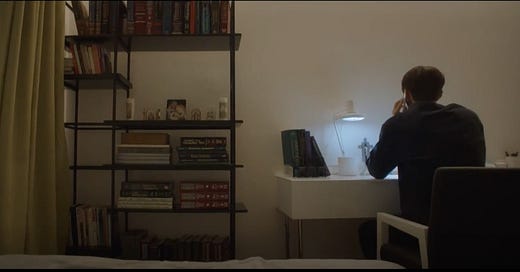



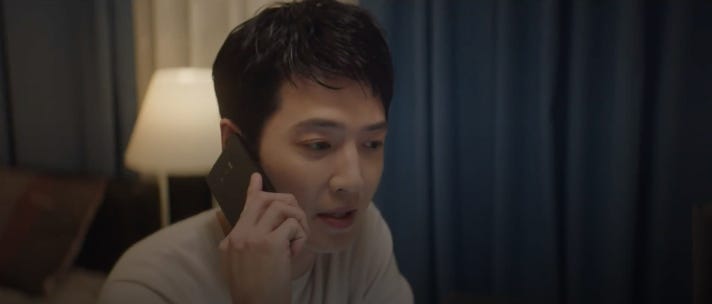


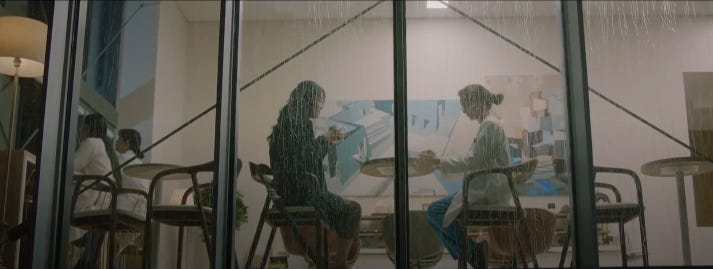
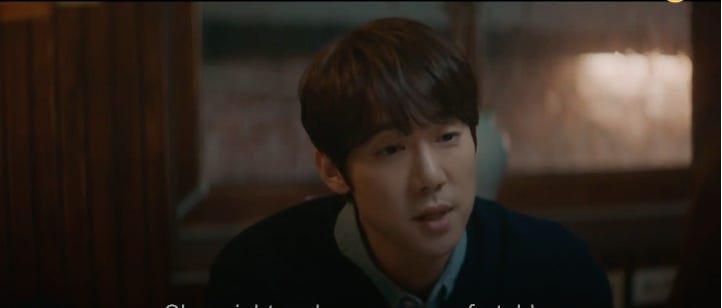
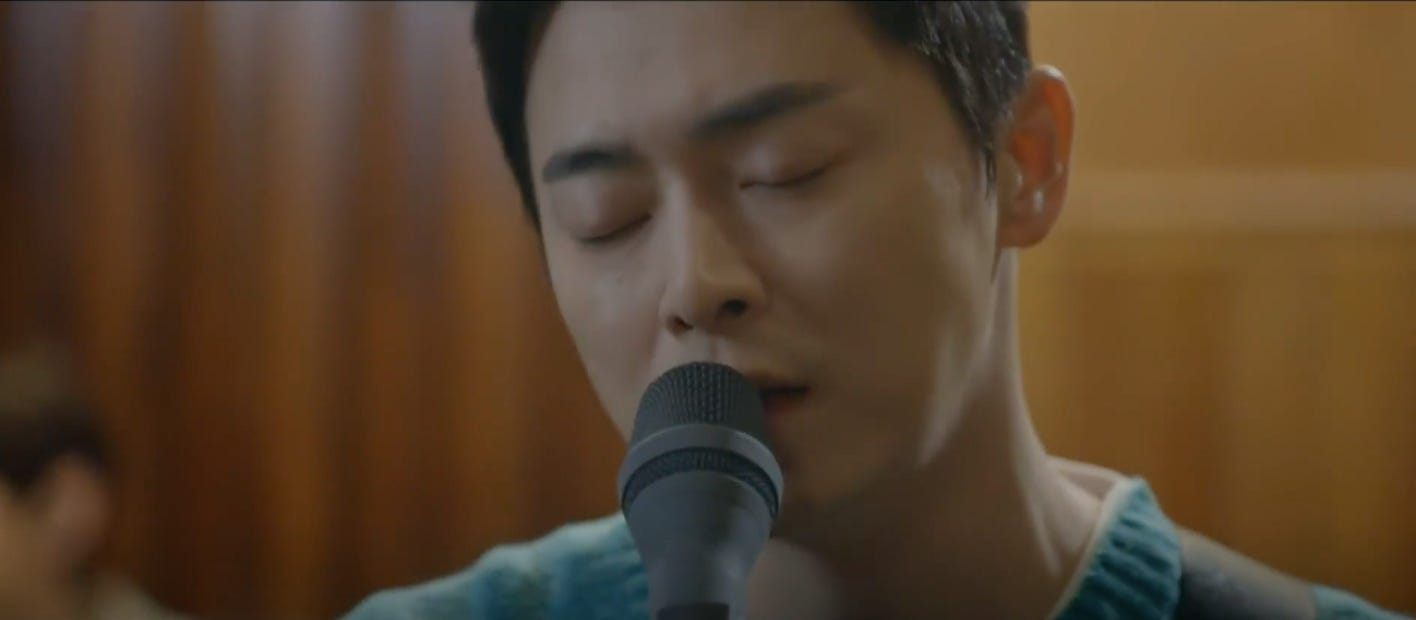
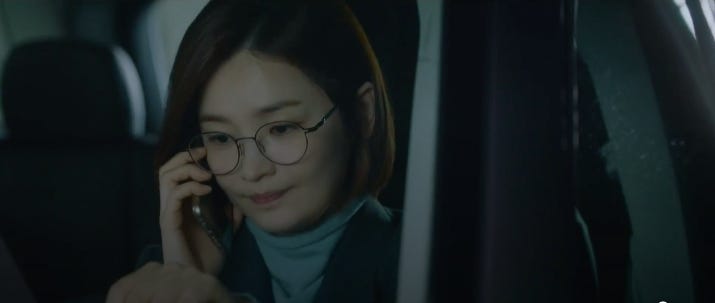
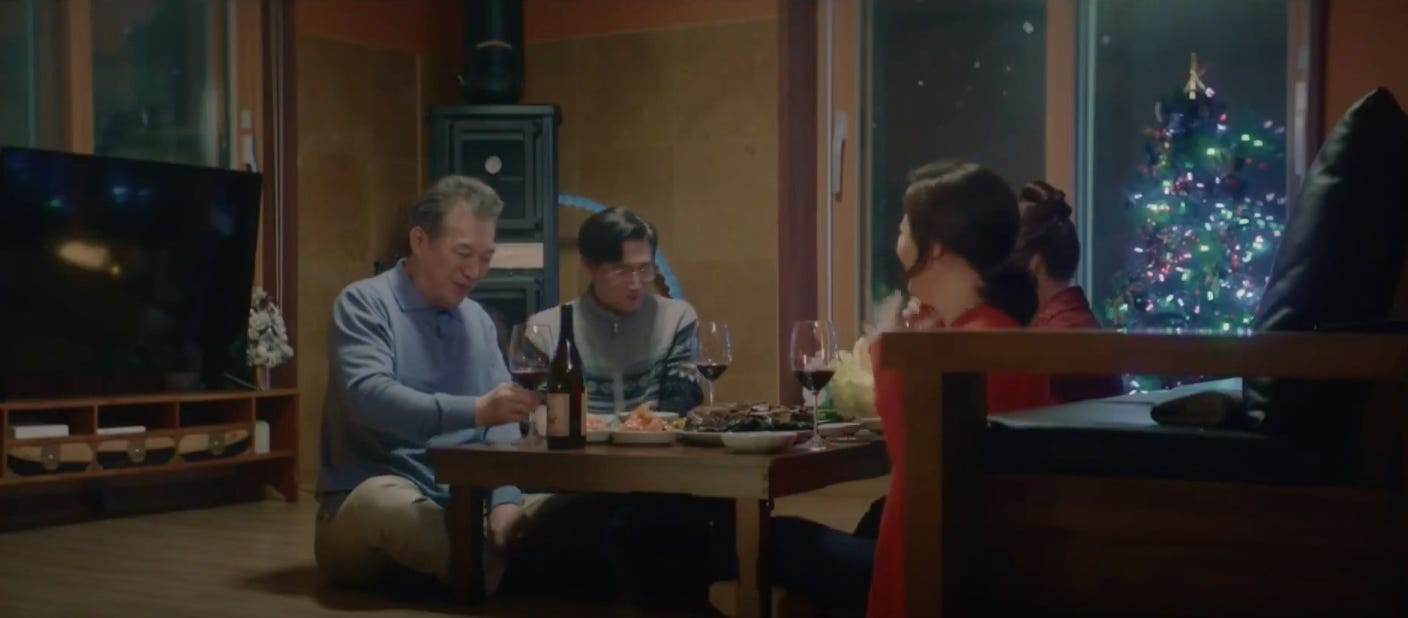
The beauty of Hospital Playlist's writing is that it lets the quiet moments in the stories speak to its viewers. And every viewer relates to the stories based on our own experiences. As a 40 something, i totally understand Song Hwa's hesitance and why she rejected Ik Jun. There is so much at stake for her, why rock the boat at this age? It's not just her friendships with Ik Jun, big the whole gang. Too precious to risk it.
I think part of this season's story would be about Song Hwa working through all these fears and issues, and both of them coming to meet in the middle. But I believe, at the end of the season, Iksong will happen.
This is my first time reading your reviews but boy, I am in awe of how spot on every sentence is. The best one of your analyses, for me, is that Ik-song don't need the development in character brought about by having each other as much as others did/do. And as someone who had both been friendzoned and ruined friendships because of breakup with a former bestfriend, I am not really for the idea. The fact that the mirror effect was used when Song-hwa gave Ik-jun her answer, confirms that she would rather sacrifice her own feelings to not touch the possibility of ruining their friendship. For me it was enough to know that she also liked Ik-jun. Thank you for this review!